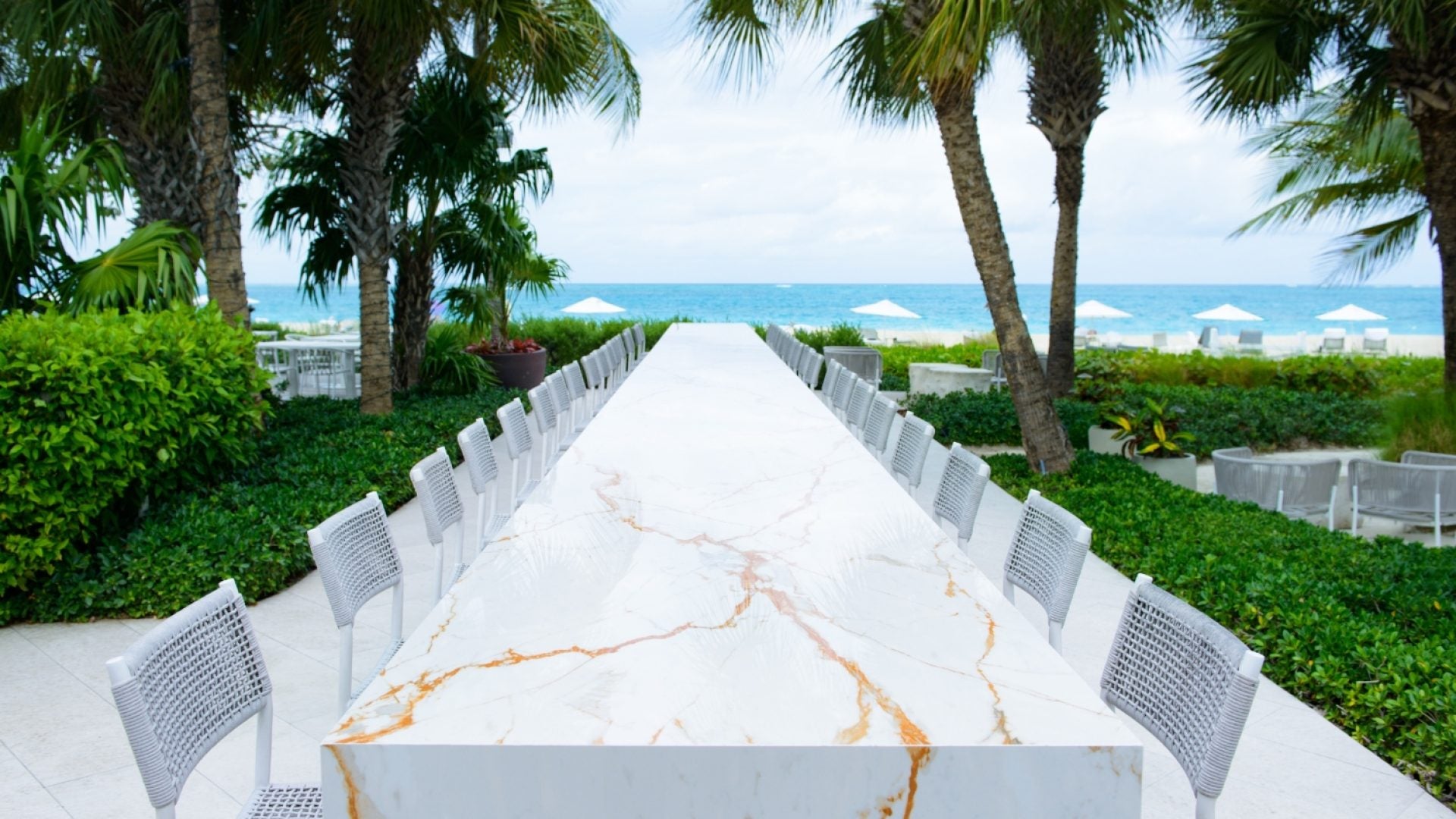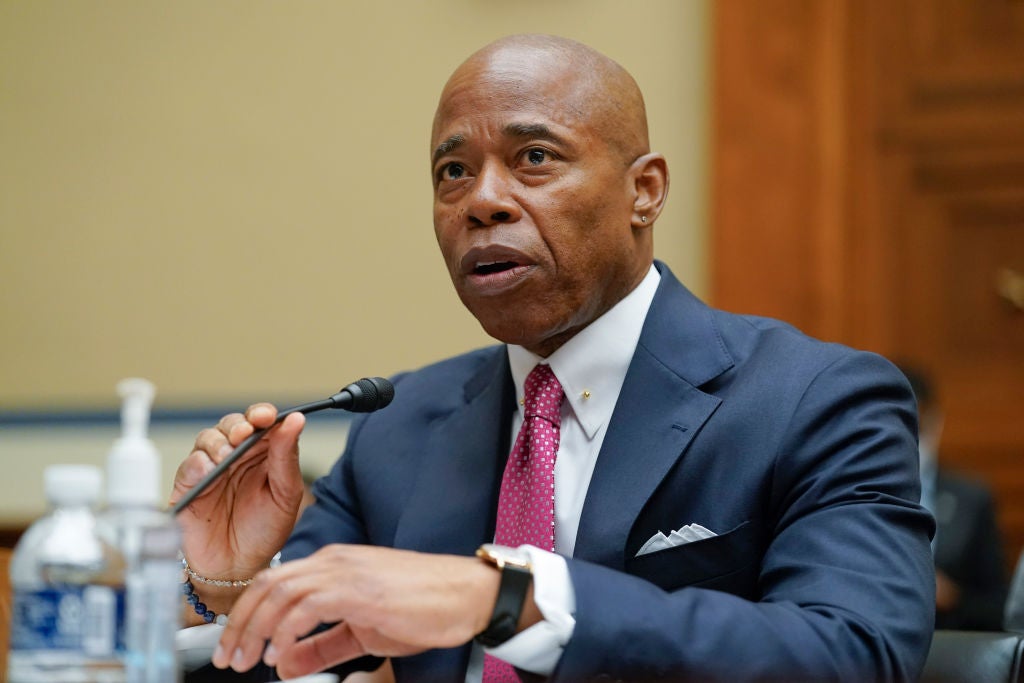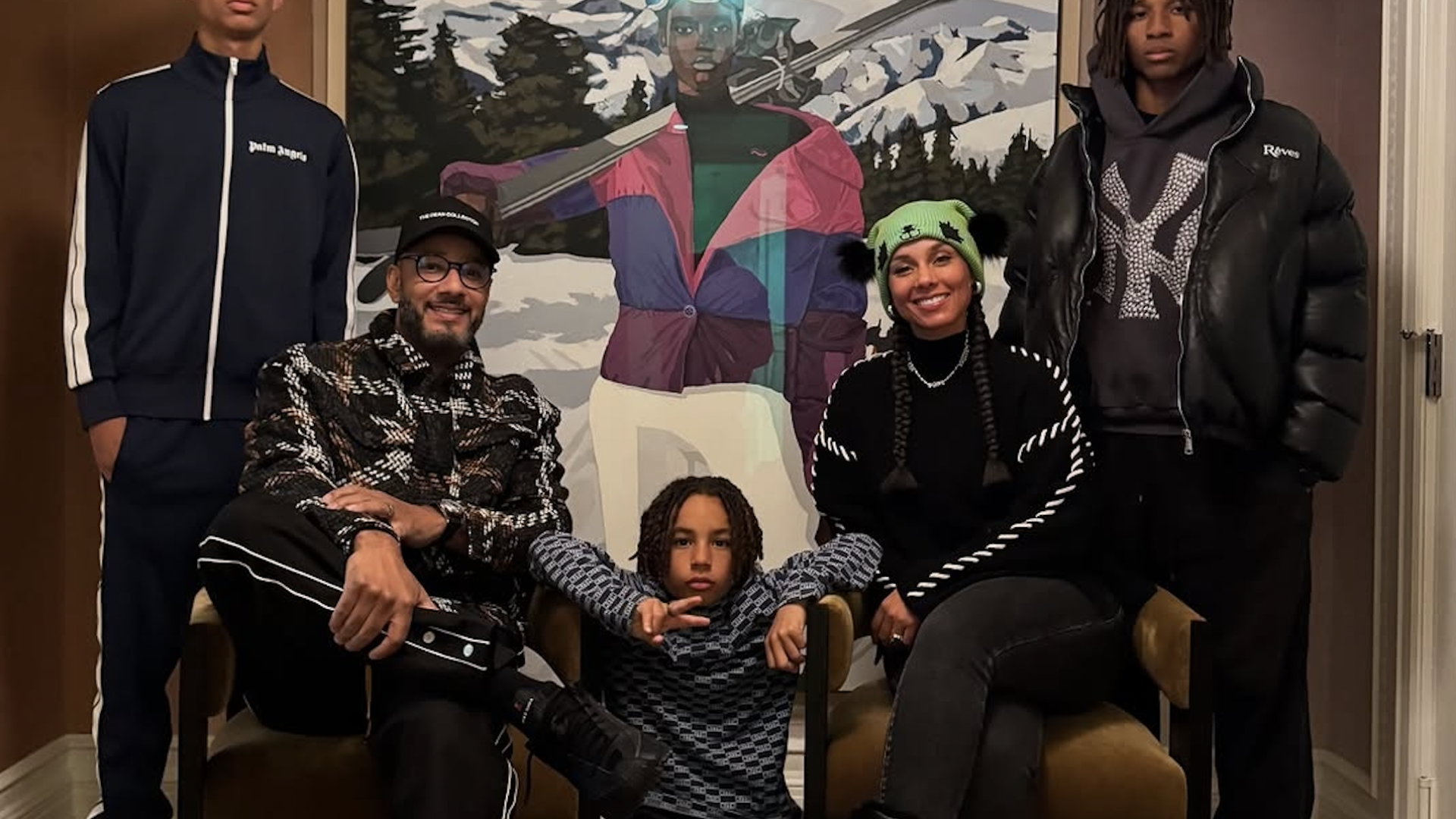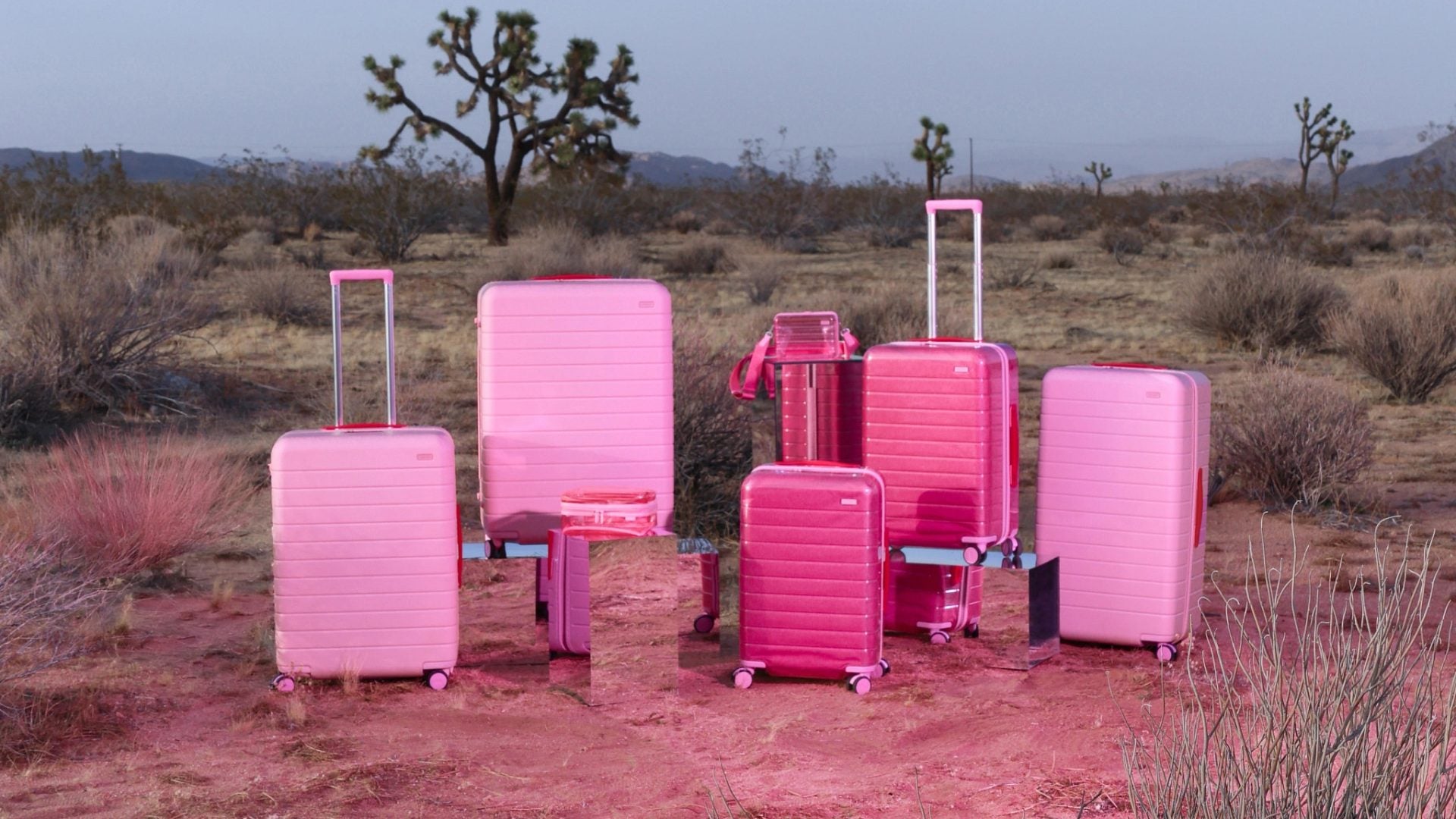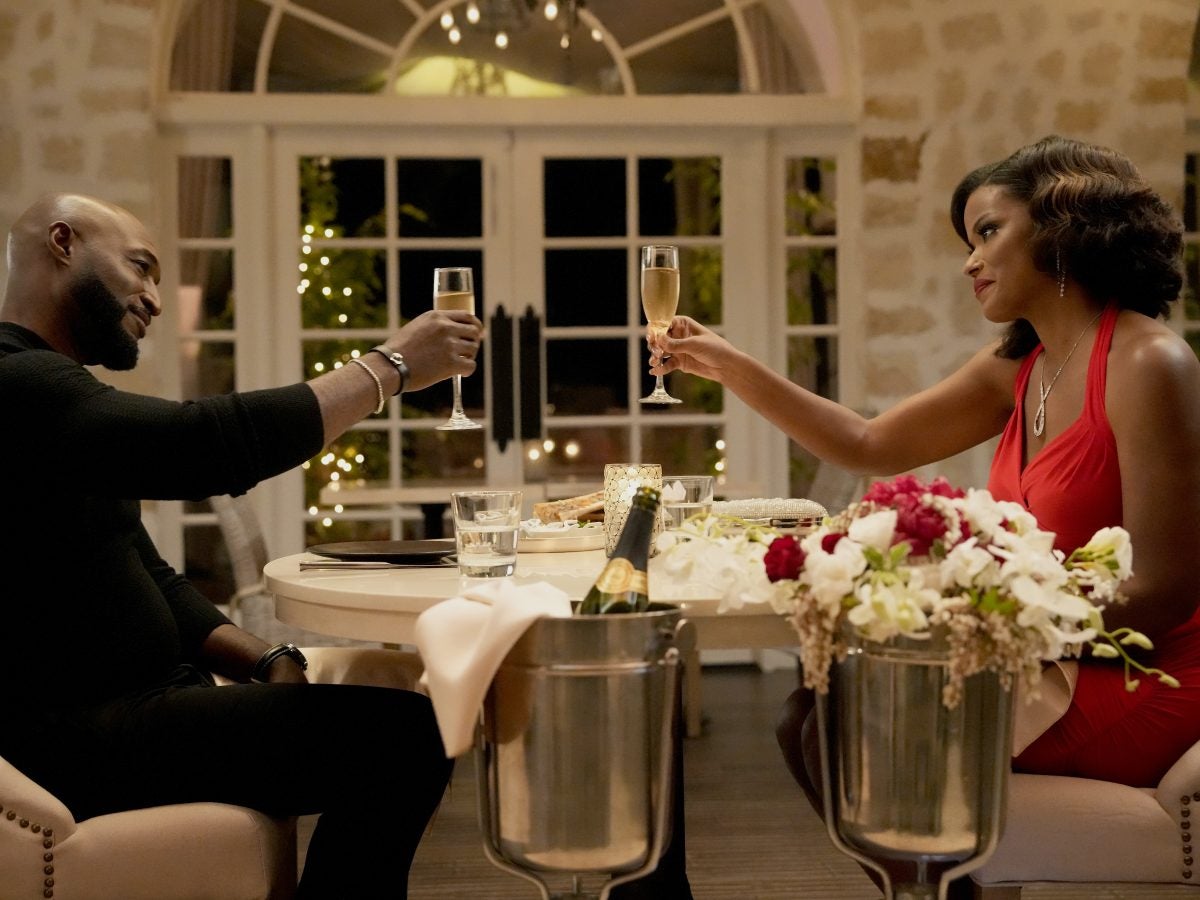
With the highly anticipated third season of Bel-Air premiering on August 15, audiences are in for a treat as the beloved characters of Uncle Phil and Aunt Viv—portrayed by Adrian Holmes and Cassandra Freeman, respectively—take center stage. The first episode kicks off with a bang, showcasing a stunning ESSENCE photoshoot that captures the couple as the epitome of Black excellence. In the first episode, the two are portrayed as a power couple who seem to have it all: thriving careers, a strong marriage, and a harmonious family life. But as the season unfolds, viewers will see that even the most picture-perfect couples face challenges, and it’s their love and resilience that will help them navigate the peaks and valleys of marriage.
“This show does a great job of sparking important conversations and dealing with a lot of issues that can be seen as taboo,” Holmes says. “We want to break down those barriers and serve as a blueprint for our community. Bel-Air can be seen as a mentor, offering lessons and experiences, for our viewers to absorb and then share with their families.”
This season, viewers will see a positive representation of Black love and the strength it takes to overcome obstacles in both personal and professional lives. The show continues to build on its growing popularity by promoting a positive family dynamic that resonates with viewers from all walks of life. In this exclusive interview, Holmes and Freeman open up about the rising popularity of the show, the importance of representing a strong and loving Black family on screen, and the behind-the-scenes magic of their mesmerizing photo session.
Take a look as this discussion delves into the heart of Bel-Air with two of its most dynamic stars, exploring what makes this season a must-watch and how the show continues to redefine the modern family drama.
ESSENCE: How does it feel to be back for a third season of Bel-Air, and what are your feelings on the positive reception that the show has received so far?
Adrian Holmes: Overjoyed is an understatement. Coming back for a third season is such a blessing. We were fortunate to have two successful seasons, but after the strike, everyone was just so grateful to be back at work, with a renewed appreciation for our jobs. I’ve never seen more smiles on set than during Season 3. The whole experience felt so elevated and grounded in a way I never thought was possible. They proved me wrong–it felt very special to reunite with everyone again. The storyline this season is steamy. It’s a lot of fun, with a summer vibe that really sizzles.
Cassandra Freeman: Yeah. I think it was great to come back. I think we had a lot of new departments to come on this season, and I think the reason it felt so good is that the people who were there working were fans of the show. So it’s nothing like having fans of the show come on and get to be heads of departments and really sort of add what they felt like was missing as a spectator from the outside.
At the top of Season 3, you will be doing a special photoshoot with ESSENCE magazine. What went into the decision to have ESSENCE as the publication used for the Power Couple issue?
AH: Well, I believe our show is a perfect example of a platform that recognizes and celebrates Black excellence and Black love, self love. And what better way to kick it off than with the ESSENCE magazine photoshoot. We had such a great time on set, and the results look amazing. When I watched the first episode, I couldn’t stop grinning–I felt so happy, so proud. It turned out beautifully. So, a big thank you to ESSENCE for being a part of it.
CF: I also think, on top of Black excellence, it’s an aspirational show. I feel like the show is a gumbo pot of all the best things that it is just to be us, and what’s better to be us than to be in ESSENCE. We’re supposed to be at the echelon of dream TV. That’s what Bel-Air has always been, dream TV, especially when Fresh Prince first came out, it’s the first time you ever saw a rich family like that in primetime TV. And you got to see them every week, and I think to carry on that torch, it has to be ESSENCE. There is no one who is the pinnacle of what Black beauty and success means.
Even though Aunt Viv and Uncle Phil will be going through their marital issues this season, on a larger scale, their relationship is very beautiful. So, I wanted to ask both of you—why is it important that the show promotes positive family dynamic and positive relationships within the Black community?
AH: Bel-Air does a great job of reflecting not only the reality that African Americans experience on a daily but also the Human experience. It appeals to all and we can all relate to the storylines and issues addressed on the show. We also aim to showcase and shed light on the diversity within our community and present all sides of the black experience. Whether it’s West Philly or in the gated communities of Bel-Air, our experiences are different, yet we’re all the same. We break down stereotypes and emphasize that our experiences are not monolithic.
It feels good to be part of such a high vibrational project. I get to work with good souls everyday who are so talented and equally passionate about telling our story.
CF: I think what Adrian said is so beautiful, and I think to add to that is, except for people in the Black community, it’s not surprising to know that Black love exists. I mean, we would not exist. Literally, love is the pinnacle for even life to begin in the first place. For a child to even be born and to live past that, you need love. So it’s not like some myth. We’re just lucky enough to have a stage to show it over and over again.
The funny thing about Bel-Air is it shows Black love at every single level, from the marriage to the children, to the extended family as well. And I think it’s such a shame that we still live in a society where it’s like, “Ooh, they’re showing Black love.” Black love is like the pinnacle of what it means just to be alive in the first place. It should be so normalized.
It’s an inspiring show, but I think really the reason why people love this show is that they feel like it actually reflects parts of their lives, parts of their family. And so many of the shows that we see now, it’s like a safari into other wild worlds where maybe there’s violence, drugs and all of that. And that exists in every single demographic in this country. But love, and I really think in every demographic, and I think actually any TV or film that can put love, forgiveness, and redemption at the front will always seem like, “Wow, what a genius idea.” Because we all like violence and payback in America. But this show is like, “No, let’s lean into another trope that we don’t just explore a lot of.”
Uncle Phil and Aunt Viv, they’re staple characters in Black cinema and Black culture in general. What has been the most exciting aspect of playing these iconic characters on screen?
AH: For me, the most meaningful part has been the reception from the community. When I’m out and people come up to me, they often share how this character has impacted their lives, their families, and their relationships with their kids. That, to me, is what matters the most. I believe we do a great job of addressing important issues in a very thoughtful, sophisticated and responsible manner and I’m honored to be a part of it in such a significant way. We need more shows that offer that kind of therapeutic value.
CF: Exactly. I don’t think anyone could imagine what it means to be in a show where people, every single person on a set, is there to make sure the family is represented in the best light. That means the lighting department cares that my complexion you see on Zoom matches the complexion on the screen. That’s huge.
AH: Philip Banks is such a man of principle and integrity and portraying him has had a positive impact on my own life. When I face certain situations, I find myself adopting some of his perspectives. The experiences and lessons I’ve had on the show have been surprisingly applicable to my own life, adding to my own personal growth.
Bel-Air is a re-imagining of the original show, how much from the original characters did you draw from in your portrayal?
AH: Well, Morgan Cooper, the creator of Bel-Air, said off the top “You guys, these are your characters. We don’t want you to be focusing on the original. We want you to make them your own.” So that took a lot of the pressure off. I just approached it like any other character, adapting what I thought worked and letting go of what didn’t, hoping that my choices would resonate– And I’m very happy they did.
But from the beginning, I felt a strong connection to the role and had a clear sense of who he was. Of course, there are qualities in the original character that you hope will naturally come through, but I don’t dwell on that when preparing or performing. I just focus on making the character authentic and as truthful as possible, trusting that the essence will be there..
CF: Yeah, I agree. I think also, they did the heavy lifting, Morgan Cooper and the producers, which is they cast people who maybe even if we don’t look like the people, I think there’s an essence that’s undeniable in the casting across the board.
And then I think the other thing is people think character means, “Oh, this person has a humpback and they have a lisp and they walk with a pimp leg.” And it’s like character is just the choices that people make from day to day, and those choices are a character. So we are making the same choices. The writers are creating circumstances for Viv, Phil, Hilary to still make the same choice. Like, “oh, it’s 2024 but we know Hilary would still act that way. We know Viv would still do that thing, right?” It’s the way they talk and the way they think. Those are the character choices, and then the essence of the human being is just what you carry around. That’s your spirit. So I think if you do it any other way, I don’t think the audience would have attached themselves to it because they would’ve said, “Oh, the writing’s not being truthful.”
So I really just want to applaud the writers for really doing a great job, trying to stay true to the original text. And also constantly, I mean, you’ll see it this season like in every season, that if you really know the vocabulary and the world of Fresh Prince, you will see how we are doing, saying, putting ourselves in sometimes the exact same blocking as the original. And so my thing is they do it as a sense of flair and spice without making it feel like it’s a mock version of the show. It’s like, “Nope, we remember.” That’s what makes it feel nostalgic. You’re like, “Oh, something about this feels so familiar,” but it’s so new again. I think what they’ve been able to do, this show will stand by itself because it’s something that hasn’t been done in quite this way and received so well.

